
Top five electric SUVs in Australia
- Volvo XC40
- Tesla MODEL Y
- Audi Q4
- BMW X Models
- BMW X Models iX
- Hyundai Ioniq 5
- Toyota bZ4X
- Nissan Ariya
- BYD Atto 3
- Kia EV9
- Jeep Avenger
- Audi SUV Range
- BMW SUV Range
- Hyundai SUV Range
- Jeep SUV Range
- Kia SUV Range
- Nissan SUV Range
- Tesla SUV Range
- Toyota SUV Range
- Volvo SUV Range
- BYD SUV Range
- SUV
- Electric Cars
- Volvo XC40 Reviews
- Tesla MODEL Y Reviews
- Audi Q4 Reviews
- BMW X Models Reviews
- BMW X Models iX Reviews
- Hyundai Ioniq 5 Reviews
- Toyota bZ4X Reviews
- Nissan Ariya Reviews
- BYD Atto 3 Reviews
- Kia EV9 Reviews
- Jeep Avenger Reviews
- Audi
- BMW
- Hyundai
- Jeep
- Kia
- Nissan
- Tesla
- Toyota
- Volvo
- BYD
- EV Advice
- Audi Advice
- BMW Advice
- Hyundai Advice
- Jeep Advice
- Kia Advice
- Nissan Advice
- Tesla Advice
- Toyota Advice
- Volvo Advice
- BYD Advice
- EV
- Electric
- Electric Cars
- SUV
- Green Cars
- EVs
- EV News

In the car marketplace, three things are absolute truths: 1) People buy a whole lot of SUVs (over 50 per cent of the Australian market was claimed by SUVs in 2021); 2) Electric Vehicles (EVs) are increasingly being accepted by Australians as the way of the future; and 3) Red cars go faster.
As you’d expect, then, electric SUVs are becoming far more commonplace and while Tesla has famously found much success in marketing its range of sedans, which includes Australia's best selling EV, the Model 3, most manufacturers are attempting to appeal to buyers with zero emissions versions of cars in the most popular SUV categories.
Although our market is still considered under-developed in terms of infrastructure and emissions regulations (they’re coming, the Labor Government says, but not fast enough), Australia has an increasing number of electric models on sale, as well as an exciting list of electric SUVs on the way soon.
Read more about BMW X Models
- The top five electric 4x4s we want in Australia
- The pros and cons of electric cars
- Cheapest electric car in Australia
Read on to see our picks for the best electric SUV options currently available, why we picked them, and if you're not yet sold, what you have to look forward to.
5. BMW iX
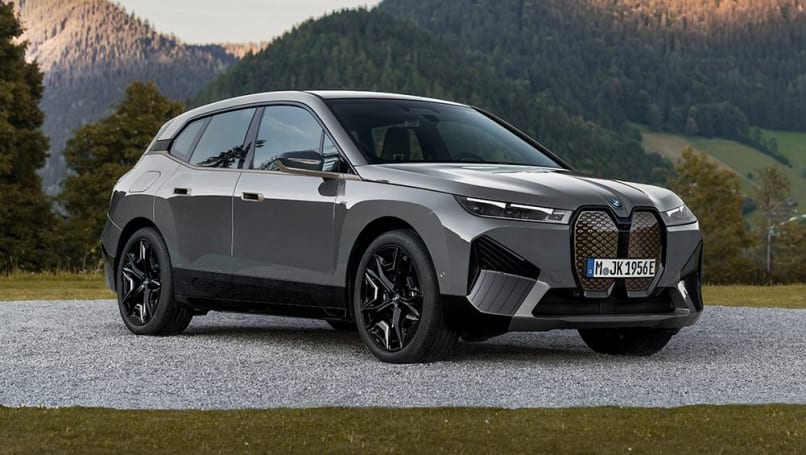
Why it's here: Range
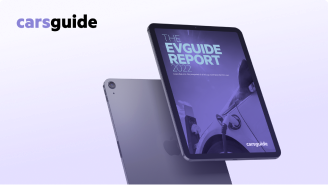
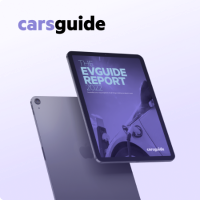
Download the EVGuide Report, 2022
Australia's one-stop snapshot of all things relating to electric cars.
The BMW iX builds on BMW’s early head-start in the EV market to provide a polished next-generation electric car.
Bold styling, relatively fast charging, and innovative details make the iX a worthy flagship.
Perhaps its most important attribute, though, is range, which, at 630km in the xDrive50 variant ($184,500), is the longest of any electric SUV on the market (at the time of publication).
Importantly, it out-does BMW’s arch-rivals at Mercedes-Benz, with its EQS SUV offering a maximum range of 613km.
4. Volvo XC40 Recharge

Why it’s here: Style
While Tesla is dominating the sales charts, Volvo is slowly creeping up the leader board thanks to its decision to focus on electric vehicles.
The Swedish brand’s Australian sales were up 18.7 per cent in 2022, largely on the back of the XC40, which added this electric SUV option to the range.
Available in either a single-motor, rear-wheel drive variant ($76,990) with 460km of range or a dual-motor, all-wheel drive option ($85,990) with 500km of range, the XC40 Recharge is proof you don’t need to sacrifice style to go electric.
3. Hyundai Ioniq 5

Why it’s here: Moves the game forward
The Hyundai Ioniq 5 is important, not just because of its bold styling, massive interior, and great driving dynamics, but mainly because of its 800-volt architecture which unlocks ridiculously fast charging times for a car with such a large battery.
There are few charging locations where you can make the most of this in Australia, but this Hyundai and its Kia EV6 cousin will be future proofed for when your nearest hub is able to restore several hundred kilometres of range in just a few minutes.
While hardly ‘cheap’ in the traditional sense, Hyundai has been trying to make an electric SUV that Australian buyers looking to make the switch can afford.
That’s why it has expanded the range recently, adding a new entry-level model, which reduces the starting price to $64,500 and offers up to 384km of range.
2. BYD Atto 3
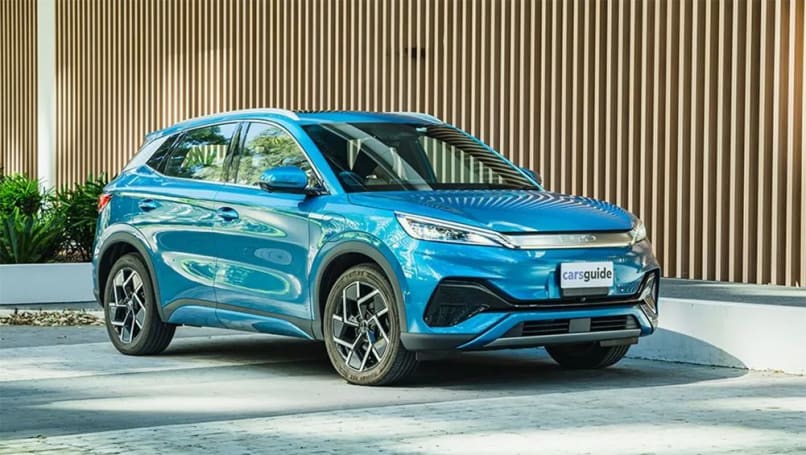
Why it’s here: Affordability
The Chinese car industry clearly sees the transition to electric cars as a golden opportunity to expand internationally. But while MG may have got to this market first, it’s BYD that is making its mark in the sales charts.
The Atto 3, a compact EV SUV about the same size as the MG ZS and Hyundai Kona, is one of the most affordable on the market with a starting price of just $48,011 for the standard range model. For that money you get an SUV capable of driving up to 410km, thanks to BYD’s proprietary ‘Blade’ battery technology.
It’s clearly a proposition that has convinced a lot of buyers, because the Atto 3 is the best-selling EV in Australia that doesn’t wear a Tesla badge.
1. Tesla Model Y

Why it’s here: Popularity
Of course a list of Australia’s best electric SUVs would be topped by the Model Y. The American brand’s mid-sizer is, by some margin, Australia’s most popular battery-powered SUV. Tesla has simply cornered the market, taking a dominant position thanks to its reputation as a technology leader.
It helps that there are three options to choose from locally, the RWD ($65,400), Long-range AWD ($78,400) and Performance AWD ($92,560) and the price has fluctuated to maintain demand.
Electric SUVs coming soon
It wouldn’t be a complete list without mentioning the new models on the verge of launching in Australia which could really shake up the above list, so here are the electric SUVs we’re looking forward to:
Kia EV9
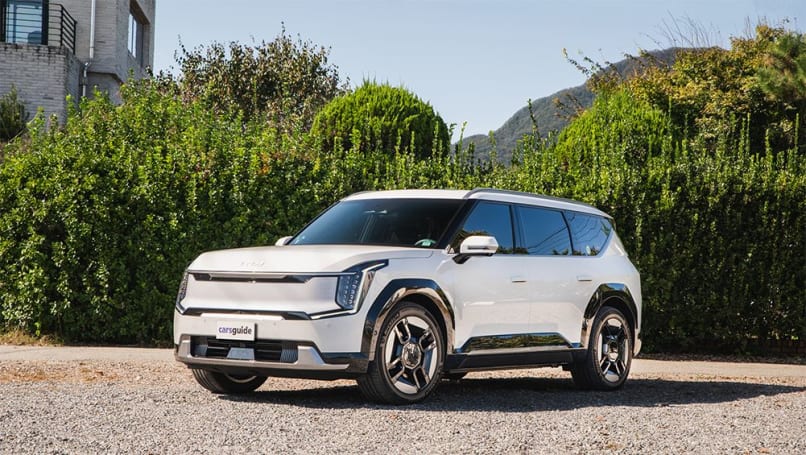
Electric SUVs are coming in a growing variety of shapes, sizes and prices. While compact and mid-size models have been more popular so far, the bigger options are coming. Kia’s EV9 is (as the name implies) the bigger sibling to the EV6, a three-row SUV that will be an electric alternative to the likes of the Toyota Prado and Nissan Patrol (at least in terms of size, not off-road ability) and should be on sale by the end of 2023.
Hyundai will follow shortly after with its own large SUV, the Ioniq 7, which is due on local roads in the second half of 2024.
Toyota bZ4X

It’s already been delayed multiple times, but Toyota’s long-awaited first all-electric model is expected to hit local showrooms in the first half of 2024. Thanks to the delays, we don’t have detailed specifications, but it’s likely to offer around 440km of range.
Importantly, it will also appeal to people unsure about making the switch to an EV with a new brand by giving them the confidence to buy from Australia’s most popular carmaker.
The Subaru Solterra is also due in 2024 and it shares its underpinnings with the bZ4X, so we’d be remiss not to include it, too.
Jeep Avenger

Yes, the brand famous for its ability to ‘go anywhere’ is jumping into the EV market. But the Avenger isn’t exactly designed to trek across the outback.
Instead, this front-wheel-drive compact SUV is meant to navigate the urban jungle. It will boast a 115kW/260Nm powertrain and a 400km range when it arrives in the second half of 2024.
Nissan Ariya

Already a player in the EV market, thanks to its LEAF model, Nissan has plans to release the all-electric Ariya SUV in Australia in 2024, albeit several years after its launch in Japan and other markets (it’s been hugely popular elsewhere, so we’ve had to wait, because we don’t buy enough EVs). The Ariya will come with the choice of either a 63kW or 87kW battery, the latter offering more than 500km of range.
Audi Q4 e-tron

Can the established luxury players strike back and compete with Tesla? The Audi Q4 e-tron will be the true test of the brand’s potential, becoming its most-affordable EV offering, when it arrives locally in early 2024. It will compete head-to-head with the Tesla Model Y, in terms of size, so there will be a lot of pressure on Audi Australia to get the price and performance right.







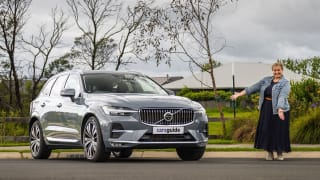

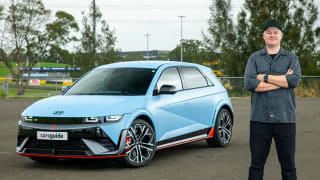
Comments